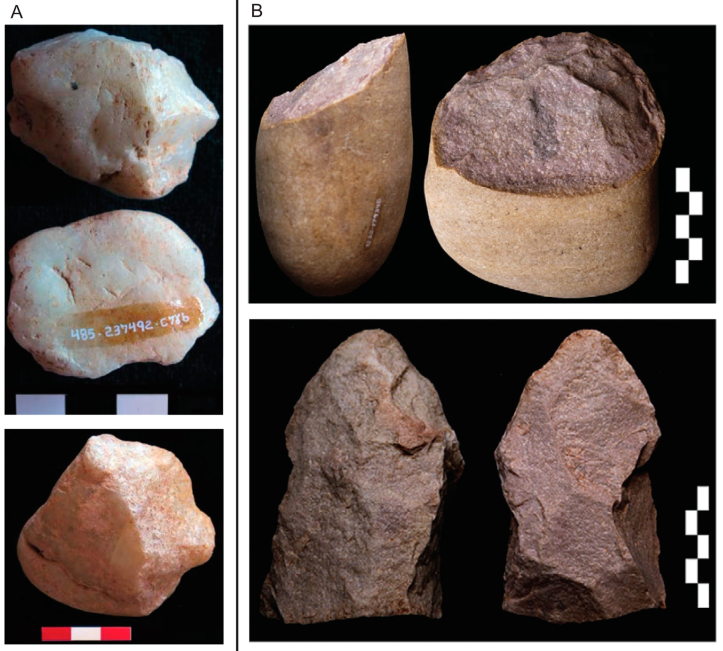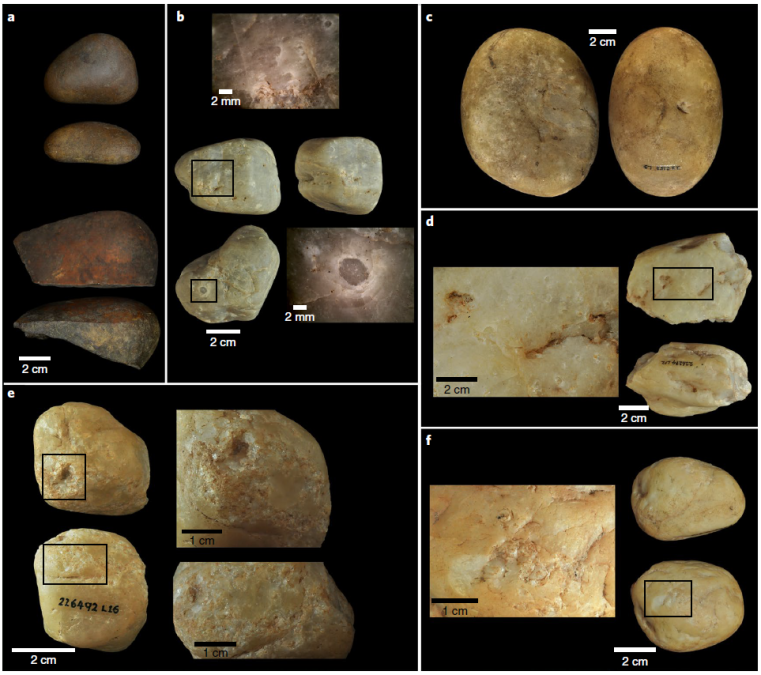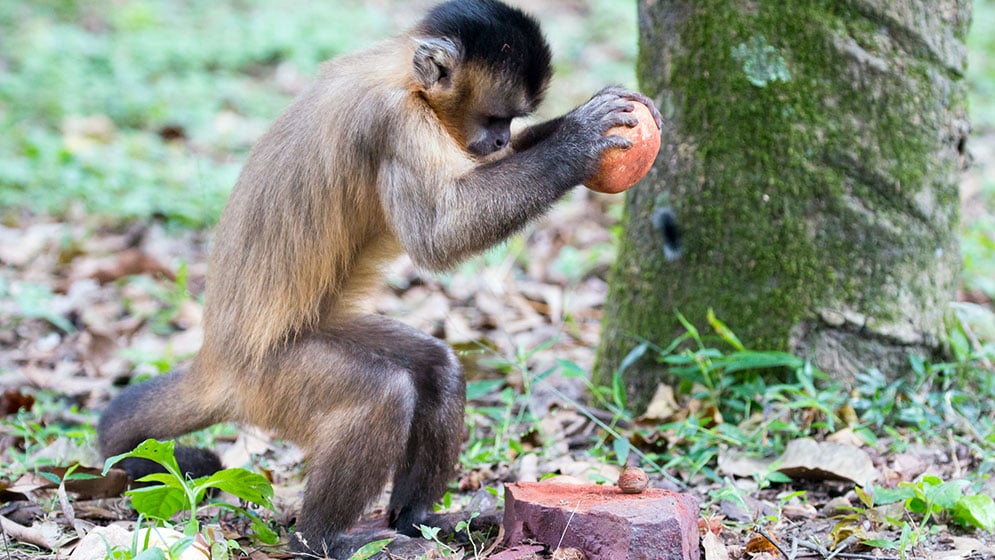Consultants are reevaluating prehistoric Pleistocene-era websites in Brazil beforehand believed to have been house to historic people. It seems, the 50,000-year-old stone instruments found in excavations are most likely the work of capuchin monkeys, not early people.
“We’re assured that the early archeological websites from Brazil might not be human-derived however could belong to capuchin monkeys,” wrote archaeologist Agustín M. Agnolín and paleontologist Federico L. Agnolín in an article printed within the new challenge of the journal the Holocene.
Excavations at Pedra Furada, a bunch of 800 archaeological websites within the state of Piauí, Brazil, have turned up stone shards believed to be examples of easy stone instruments. Constituted of quartzite and quartz cobbles, the oldest ones seem like as much as 50,000 years previous, which might put them among the many earliest proof of human habitation within the Western Hemisphere.
Nonetheless, the instruments additionally bear a putting resemblance to the stone instruments presently made by the capuchin monkeys at Brazil’s Serra da Capivara Nationwide Park.
The monkeys have their very own rock quarries, the place they choose considerably sized rocks to make use of as hammers to crack nuts towards a bigger, flattened anvil rock. Rocks additionally come in useful for consuming seeds and fruits—and the monkeys even lick the mud created from driving two rocks collectively, probably as a manner of including minerals to their diets.
Stone instruments help capuchins with different duties as properly, akin to digging. And the females throw rocks at potential mates as a manner of demonstrating sexual curiosity.
All of those processes can result in the stones breaking into smaller flaked items—which, the brand new examine discovered, are indistinguishable from some historic stone instruments carved by early people.

Pebble instruments from Pre-Clovis websites in Brazil: A, Vale da Pedra Furada artifacts; B, Toca da Tira Peia artifacts. Photographs courtesy of Elsevier.
“Our examine reveals that the instruments from Pedra Furada and different close by websites in Brazil had been nothing greater than the product of capuchin monkeys breaking nuts and rocks some 50,000 years earlier than the current,” Federico Agnolín, a researcher on the Argentine Museum of Pure Sciences, advised Argentina’s Nationwide Scientific and Technical Analysis Council (CONICET).
The chance that monkeys had been answerable for the human-looking lithic deposits at Pedra Furada was first raised in 2017 by archaeologist Stuart J. Fiedel within the journal PaleoAmerica, noting that capuchins could have been utilizing instruments for 100,000 years. Related considerations had been mentioned within the journal Quaternaire in 2018.

Stone pounding implements utilized by capuchin monkeys in Brazil. Photograph by Tiago Falótico.
A 2019 examine printed within the journal Nature Ecology & Evolution was the primary to look at stone tool-making practices of the capuchin inhabitants on the Serra da Capivara.
Coupled with the shortage of different proof of human habitation from 50,000 years in the past, akin to concrete traces of dietary stays or hearths—charcoal on the website may have originated from naturally occurring fires—the instruments’ resemblance to rock fragments created by monkeys calls into query the chance that people had been answerable for their creation.
The brand new findings may have a serious affect on our understanding of when the primary people arrived within the Americas. Pleistocene archeological websites from Brazil are among the many most compelling proof that individuals lived on the continents previous to the tip of the final Ice Age.

Capuchin monkey fracturing nuts utilizing a rock as a hammer and a bigger one as an anvil in Northeast Brazil. Photograph by Tiago Falótico, courtesy of CONICET.
The once-predominant “Clovis first” principle lengthy held that glaciers prevented vital settling of the Western Hemisphere till round 14,000 years in the past. In latest many years, archaeological websites just like the Buttermilk Creek advanced in Texas, which has proof of human inhabitants courting again 15,000 years, and Monte Verde in Chile, dated as early as 18,500 years in the past, have challenged that speculation. There’s rising acceptance of the idea that through the Ice Age, folks started settling alongside a coastal entry route.
However help for a Pre-Clovis human presence obtained a setback final month, when new testing referred to as into query the courting of fossilized footprints at New Mexico’s White Sands Nationwide Park to 22,800 to 21,130 years in the past—making them the oldest proof of human occupation of North America. It now seems the seeds used to this point the markings could have ingested historic carbon from the waters of Lake Otero, resulting in inaccurate, artificially historic courting.
Now, Brazil’s capuchin monkeys could have landed one other blow towards the Pre-Clovis faction.
“Our work reinforces the concept the human settlement of this a part of the American continent is more moderen and is in keeping with the research that decide its arrival some 13,000 or 14,000 years earlier than the current,” Agustín Agnolín, of Argentina’s Nationwide Institute of Anthropology and Latin American Thought, added. “This questions the hypotheses that proposed an excessively previous settlement of South America.”
Observe Artnet Information on Fb:
Need to keep forward of the artwork world? Subscribe to our publication to get the breaking information, eye-opening interviews, and incisive vital takes that drive the dialog ahead.


